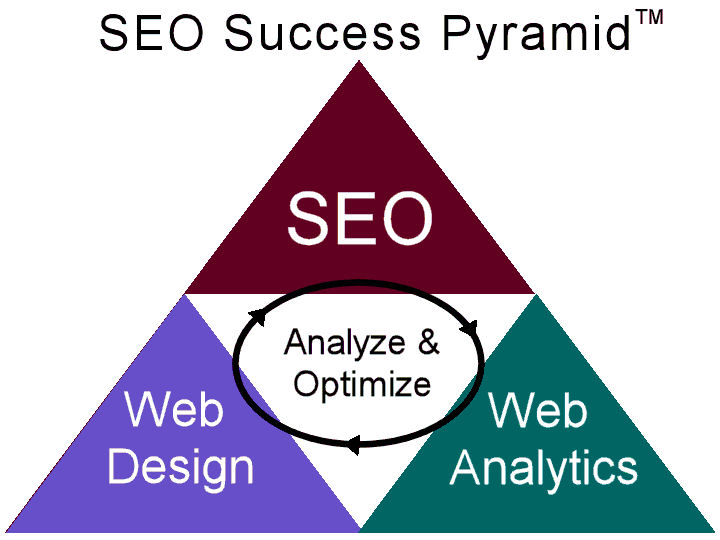Social Media Versus Search
In Industry News, Social Media, Social Networking | No comment
After all, sites like Facebook, Twitter, and MySpace can disseminate information about your company’s products and services in a quick and (most importantly) free way. And this ability has many touting this means of marketing as the next best thing.
But there’s also something to be said for holding off on any fad that simply seems too good to be true. After all, any new marketing efforts require time and energy. Even if there isn’t any money required upfront, there is still the necessary dedication of manpower. And this can be viewed as tantamount to expense, because time is most certainly money. As such, before you or your company launches an organized social media effort, make sure it’s right for your business and make sure your business is ready for that kind of campaign.
(more…)


 It was only a matter of time before our medical records and medical histories teamed up with the internet. And not surprisingly, Google led the way with their Google Health beta program.
It was only a matter of time before our medical records and medical histories teamed up with the internet. And not surprisingly, Google led the way with their Google Health beta program. When eBay was first introduced to the online community, it truly revolutionized the way people viewed working from home. In a post-eBay era, it suddenly became a very real possibility for people to pull in a little extra cash simply by dishing off household leftovers. But as the company grew more and more popular, the higher ups grew more and more greedy. Raising their listing fees and other associated fees, users grew increasingly alienated.
When eBay was first introduced to the online community, it truly revolutionized the way people viewed working from home. In a post-eBay era, it suddenly became a very real possibility for people to pull in a little extra cash simply by dishing off household leftovers. But as the company grew more and more popular, the higher ups grew more and more greedy. Raising their listing fees and other associated fees, users grew increasingly alienated. Making its debut in the middle of 2005, Google Earth was an innovative virtual globe that allowed users to view satellite images of almost anywhere in the world. Seeing the roof of your house or your car in the driveway after zooming in from the earth as a whole was certainly a unique and exciting thrill, but after the initial appeal wore off, users began to draw a collective yawn.
Making its debut in the middle of 2005, Google Earth was an innovative virtual globe that allowed users to view satellite images of almost anywhere in the world. Seeing the roof of your house or your car in the driveway after zooming in from the earth as a whole was certainly a unique and exciting thrill, but after the initial appeal wore off, users began to draw a collective yawn. With the world watching Obama on inauguration day, it was inevitable that people would carefully analyze his speech from a variety of different angles. But I’m sure not even his young, hotshot speechwriter Jon Favreau (sorry, not Mikey of Swingers fame) foresaw that
With the world watching Obama on inauguration day, it was inevitable that people would carefully analyze his speech from a variety of different angles. But I’m sure not even his young, hotshot speechwriter Jon Favreau (sorry, not Mikey of Swingers fame) foresaw that  It’s hard to even imagine the internet without the aid of search engines. Whether you’re looking for a piece of trivia or you’re looking for a new website, search engines are the main way we navigate the virtual world. And within this world of search,
It’s hard to even imagine the internet without the aid of search engines. Whether you’re looking for a piece of trivia or you’re looking for a new website, search engines are the main way we navigate the virtual world. And within this world of search,  Yahoo is one of the most established internet presences, and this has been a busy week for the online-centered business. While one move represents a company improvement, another feels like a step backwards.
Yahoo is one of the most established internet presences, and this has been a busy week for the online-centered business. While one move represents a company improvement, another feels like a step backwards. Sure. Digg’s heart might be in the right place, but in practice, does the system fall short? That’s
Sure. Digg’s heart might be in the right place, but in practice, does the system fall short? That’s  In the United States we have a tendency to think we are the most technologically, politically, and socially advanced. But, as far as internet use goes, Americans aren’t logging on as often as Chinese users. With 253 million internet users, China recently surpassed the United States with the
In the United States we have a tendency to think we are the most technologically, politically, and socially advanced. But, as far as internet use goes, Americans aren’t logging on as often as Chinese users. With 253 million internet users, China recently surpassed the United States with the 